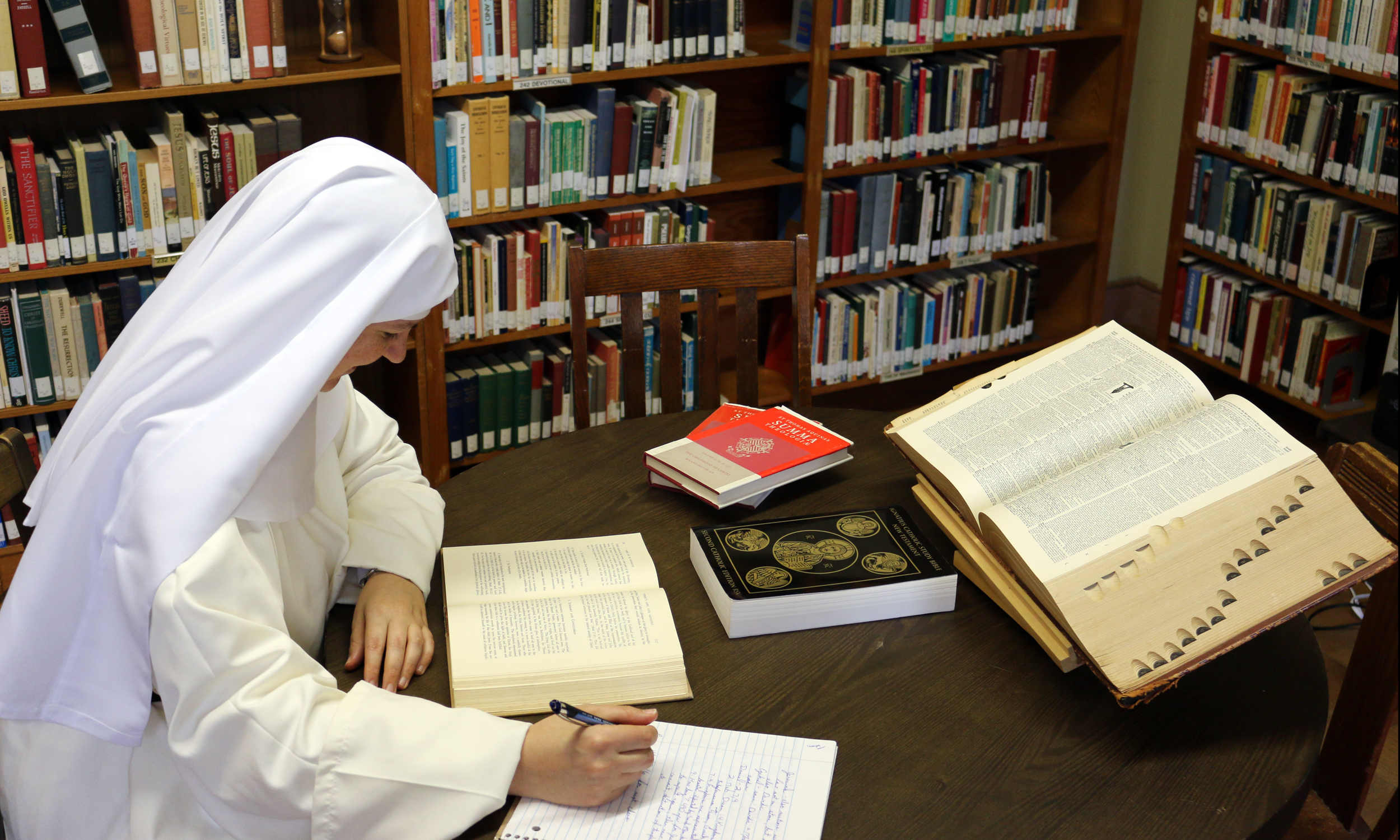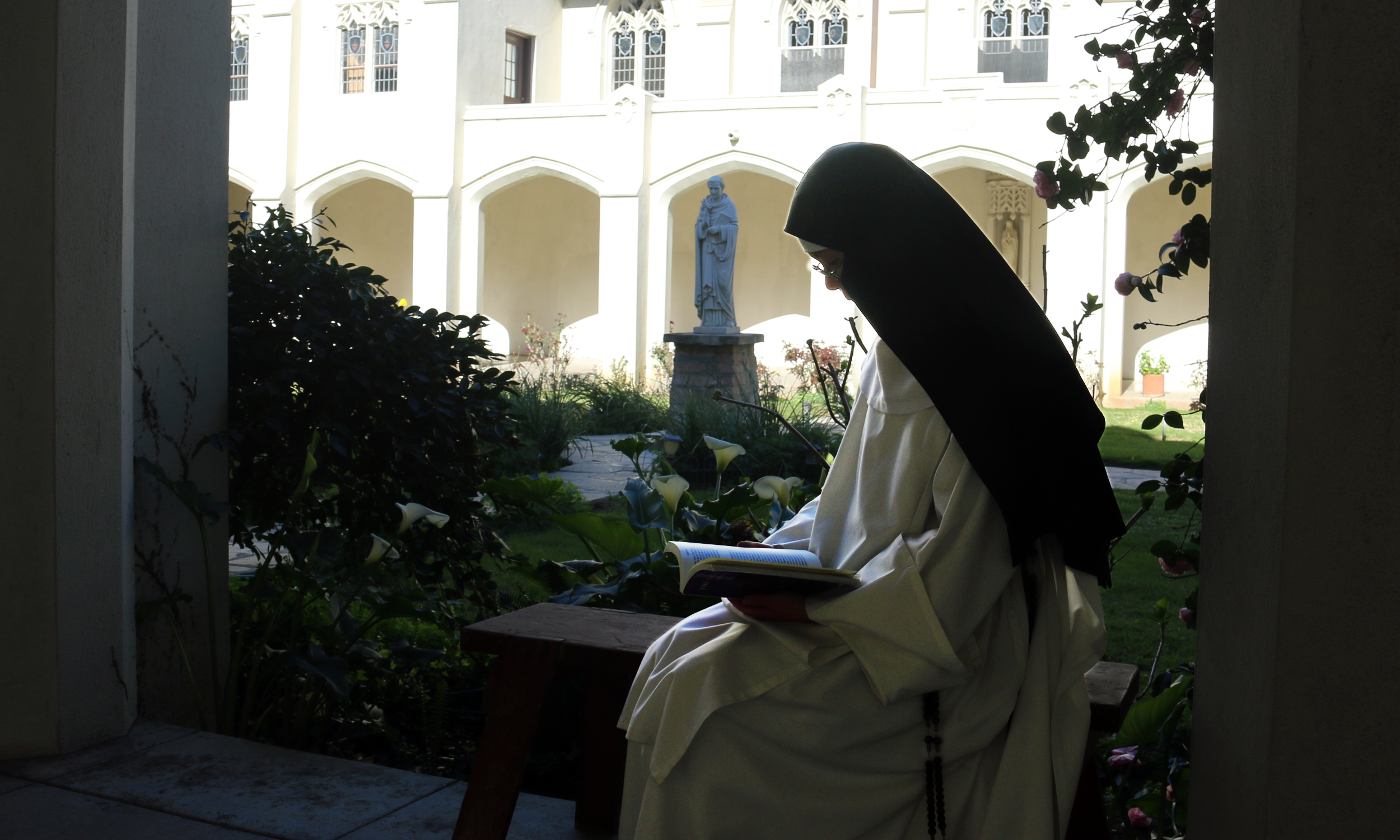A Day in the Life
Accept the challenge of the contemporary world, and of the world at all times, by living the mystery of your [contemplative religious] state, more radically than ever. This is madness to the eyes of the world and wisdom in the Holy Spirit: the exclusive love of Christ and of all our fellow men in Him.
-Pope John Paul II
regular observance
Regular observance, adopted by St. Dominic from tradition or newly created by him, fosters the way of life of the nuns by helping them in their determination to follow Christ more closely and enabling them to live more effectively their contemplative life in the Order of Preachers. Mindful of the first nuns whom the blessed Dominic established in the monastery of Prouille at the heart of the “Holy Preaching,” the nuns, while living together in harmony, follow Jesus as He withdraws into solitude to pray. In this way they are a sign of that blessed city Jerusalem which the brethren build up by their preaching. In the cloister the nuns devote themselves totally to God and perpetuate that singular gift which the blessed Father had of bearing sinners, the down-trodden and the afflicted in the inmost sanctuary of his compassion.
To regular observance belong all the elements that constitute our Dominican life and order it through a common discipline. Outstanding among these elements are a) Common Life and Community, b) Prayer (the celebration of the liturgy and personal prayer), c) Study of Sacred Truth, and d) Preaching (first and foremost through faithful observance of the vows). To fulfill these elements faithfully, we are helped by 1) Enclosure, 2) Silence, 3) the Cell, 4) the Table, 5) the Habit, 6) Work, 7) Penitential Practices, and 8) Regular Chapter.
COMMUNITY horarium
5:35 a.m. - Angelus, Matins, Lauds
6:30 a.m. - Breakfast, Study
8:00 a.m. - Sacrifice of the Mass,
followed by Thanksgiving and Terce
9:00 a.m. - Work / Class
11:30 a.m. - Sext, Rosary
12:00 p.m. - Angelus, De profundis, Prandium
12:30 p.m. - Recreation
2:00 p.m. - Profound Silence
3:00 p.m. - None, followed by Work / Class
5:00 p.m. - Vespers, Lectio Divina
6:00 p.m. - Angelus, Collation/Supper
7:00 p.m. - Recreation
7:30 p.m. - Compline
The nuns devote a total of at least two hours each day to personal (mental) prayer, which includes a time of vigil prayer before Matins or after Compline, a daily holy hour before the Blessed Sacrament, and a half hour of lectio divina. Additionally, times of profound silence (afternoon hour and the night hours) are particularly reserved for additional prayer, study, and needed rest.












![ON DOMINICAN DEVOTION TO THE ROSARY: "[Sister Magdalen Angelica] acquired all her perfection through the meditations of the Rosary; and when one Rosary Sunday, towards the close of her life, she knelt before our Lady's altar, and prayed for innocenc…](https://images.squarespace-cdn.com/content/v1/5a32b42d9f8dce05dea5bcea/1518825478569-W0U6LTEMJXIRYKHPEQ38/Rosary+with+Choir+Angel.jpg)











